My title for this triad really comes from the third and best episode, but alas, it was an evanescent hope. We all know that it will be drowned and destroyed in the tsunami of bitter grief and unthinking rage that consumed Jalal when the child he was expecting with such joy proved to be a mirage. But I decided to stay with the title regardless, for if one could try and blot out what is to come, one would be fully justified, Saturday night, at feeling a sense of happy anticipation about the Jalal-Jodha relationship.
Let us start with Episode 52.
Episode 52: A clearing of the air
There was a lot of this around in this episode, was there not? Rather like a giant exhaust fan in operation, sucking up the cobwebs of misunderstanding/ misconception on several issues, of the kind that are the daal roti of TV serials, and which festoon every one of them from the beginning to within 3 episodes short of the end. I was quite amazed, and this reinforced my conviction that, the sudden downward plunge in Ruqaiya's character notwithstanding, Ekta's writing team for Jodha Akbar was not, at least till this point, from the usual soap factory lot.
Let me just list the highlights, and let us dispose of the unpleasant bit first.
Chinti ke par nikal aaye: Sharifuddin's natural cunning and instinct of self-preservation kick in almost as soon as he has finished slapping Bakshi Banu (to take out his ire at Jalal having ordered him to give back the exactions he had made from Bharmal). Aided by his foolishly gentle wife ( she is of the kind that breeds wife-beaters) , he extricates himself from a potentially deadly faux pas.
Then he proceeds, in the time honoured manner of old fashioned screen villains, to proclaim (for our benefit), to the accompaniment of a loud stagey guffaw, that he actually has ambitions to rule the Mughal empire.
It seems that no one was listening in, which seems impossible in the Agra palace, but as Sharifuddin's head will be still on his shoulders for a while yet, one presumes that all the chartered eavesdroppers must have had a day off then😉 .
If Sharifuddin had had a mother like Mahaam Anga, he would have received 3 ringing slaps, but his mother had probably kicked the bucket soon after finding out that she had produced such an offspring😉, so he escapes that salutary lesson for excessive ambition. His eventual fate is likely to be the same as the aforesaid chinti.
Sharp eyes: That Jodha is excellent at spotting what others seek to hide was already evident at the Amer jail, when she recognized Jalal from just a wavy image sighted in the water, that too an inverted one. Now she proves it again by spotting the dark mark of fingers on Bakshi Banu's cheek, but she also proves her sense of diplomacy by covering up the bruise, and her knowledge of it as well.
A gentle mind and a generous heart: That is Salima Begum. She is wonderful in her scene with Jodha, and not just because she clears away so many of Jodha's misunderstandings and fills in so many gaps in her knowledge of the various dramatis personae in her new world: about Rahim's real parents, about her own happy life with Bairam Khan, about Jalal and Bairam Khan, about Jalal and Rahim, about Ruqaiya and Jalal.
Most important of all for Jodha and Jalal is her clarification about what happened to the parents of that little Hindu boy, who were initially sentenced to prison at the Diwan-e-Aam. (The CVs slipped up there; they should have inserted a flashback of Jalal gripping Jodha's arm hard and hissing Adhuri jaankari ek gunaah hoti hai, Jodha!).
It was ill-considered, and hardly tactful of Jodha to voice such sharp disapproval of the Shahenshah - beginning with Vishwas nahin hota ki Shahenshah ke man mein bhi komalta bhi hai! , then citing the example of the little Hindu boy, and ending up by nearly spitting out the words aur yahan pitrutva vyavahar! - to another begum on his, that too one she hardly knows.
But Salima takes it in her stride and goes on to add a very pertinent and educative comment: Kabhi kabhi unhein kadhe kadam uthane padte hain, lekin Shahenshah ke man mein bhi ek mohabbat ka sauta (?) behta hai jo humne mehsoos kiya hai, Rahim ko lekar.
The real importance of Salima's role in this segment lies more in the deep and compassionate insights she provides the normally impatient and judgemental Jodha, not just about Jalal's hidden qualities and about the compulsions of imperial rule, but even about Ruqaiya's hidden hurts and what lies beneath her aggressive possessiveness towards Jalal.
The lovely little scene earlier, between Jalal, Ruqaiya, Salima and Rahim, illustrates and emphasizes all that Salima has to say here. It is also an upgrading of Ruqaiya (for want of a better term) by making her more human and more vulnerable, both in her open, unalloyed affection for Rahim and in her desperate longing for a child of her own, and thus less of the plastic harem superintendent she had been presented as for these last few weeks. It was most refreshing, and it made me realise once more how much I was missing the old Ruqaiya. Regrettably, it proved to be an one-shot exercise!
To revert, when Salima says that what matters is not how long one lives, but how one lives, and with whom, the wisdom of the ages speaks thru her to Jodha.
Jodha herself seems to have arrived at some measure of wisdom and acceptance when she tells Bakshi Banu earlier that time heals all wounds: I wondered then if she was referring to Suryabhan's death. After the conversation with Salima, her mind must be more open, and more at rest, than it has ever been since the battle for Amer.
The quality of caring: With apologies to Shakespeare. Like Portia's quality of mercy in The Merchant of Venice, the quality of caring in Jodha is also twice blessed: it blesses her that gives and also the one who takes.
Jalal wonders earlier what more there might be for him to discover about Jodha. He gets a large dollop of it here, served up front and centre, with the natural self-assertion of a wife who insists on setting her laggard spouse right where she believes that he has fallen short. A most novel experience for both Jalal and the Shahenshah! But of that a little later.
The earlier part of the scene with Jodha, Hamida Banu and Sheikh Salim Chisti is charming, both in the affectionate respect that marks Jodha's behavior towards her Ammijaan, and in her calm demeanour when she receives the holy man's blessings on her marriage with Jalal. When he prophesies that this will herald a new bright era for the Mughal empire, maybe her thoughts go back to what her mother told her, before the wedding, about bhagya choosing its own yoddha.
New sensations: Even when the Sheikh goes on to proclaim that this union would soon produce an heir for the empire, she does not flinch. It is worth noting that at this point, Jalal, who is of course constantly stealing sidelong glances at Jodha, does not look either smug or triumphant. On the contrary, he looks very serious and even a tad troubled, as if he were wondering how on earth any such near miracle was to be pulled off when his wife cannot even stand his touch.
The touch part takes a baby step forward when Jodha, after some initial hesitation, lets Jalal help her off the podium. The look he gives her afterwards is neither amused nor one of arrogant self-satisfaction. It is one of pure pleasure and happy possessiveness, and when she looks up and catches it, there is no distaste or pulling back in her eyes. There is something quite different in them, and that relates to Hamida Banu's sudden mannat to walk to Ajmer and back to ensure that the Jalal-Jodha baby does make its appearance as the heir to the Mughal empire.
To go back a bit, when Jodha immediately endorses his protest against this alarming proclamation - Shahenshah bilkul sahi keh rahe hain, Ammijaan!- Jalal does an imperceptible double take. It was not clear whether it was because he heard Jodha calling his mother Ammijaan- with all that implies, not just for her relationship with Hamida Banu but also in terms of Jodha's desire to adopt Mughal tehzeeb - or because her ready support for him astonishes him😉.
Thereafter, once he gives up, with a weak smile, one sees Jodha darting some fairly irritated glances at him when they are still seated on the podium. It seems clear that if they had been on even slightly better terms, she would have nudged him sharply and hissed instructions into his ear 😉that he should react more strongly and decisively to halt this dangerous mannat .
It is also to be noted that when Jalal, who spends a much longer moment looking down at his wife than taking leave of the rest, finally departs, he nods farewell to Jodha, and her eyes follow his retreating figure - both firsts of their kind!
An aggressive biwi: This is one delightful scene - the Shahenshah being hauled over the coals relentlessly by his hitherto distant wife for having, of all things, failed to prevent his mother from undertaking a hazardous pilgrimage.
When Jodha lands up at Jalal's suite, he must have wondered what was in the offing, though he maintains a poker face. This is accentuated when she begins by apologizing: Sabse pehle is samay for disturbing him: he was surely wondering Ab isko kya ho gaya hai, ki hamare saath itni tameez se pesh aa rahi hai? 😉
But she is dead set on her worries, and does not bother about his expression or even pause as she launches into her arguments. The beautiful face is creased with genuine fear and concern for her Ammijaan as she ticks Jalal off in no uncertain terms for not having been forceful enough in stopping his mother: Yadi aap samajhte hain to aapko phir se samajhane ki aavashyakta kyon padti hai?
Dismissing Jalal's narrow-eyed retort : Par humne unhein mana kiya tha na? - she steams ahead: Aapki na mein wo bal nahin tha jo unke pran mein tha..Ek bar apni baat par bal dekar samajhane ka prayas kyon nahin kiya aapne?
He is bemused, and even as he lodges a proforma protest about his being lectured to about how he should handle his mother, one can see that he is both touched and impressed by the quality of caring that is so evident in her. As for her, for once her retort is not acerbic, but rational and telling.
Har prashna ka uttar prashna nahin hota, Shahenshah, kabhi uttar bhi dena padta hain! Batayiye, kaise manayenge aap Ammijaan ko ki wo apna hat tyaag dein?
What follows is, at one level, a triumph of quick thinking by Jalal, who is undoubtedly used to exploiting every opening he can get in battle, and this is, after all, also a battle of a kind. The stroke of pure genius lay, however, in his remembering the way in which Jodha had given a kasam to Motibai in the Diwan-e-Khas, and immediately adapting it to his own benefit! Poor Jodha is, by episode end, boxed in by the kasam on her patidev's head on the one hand, and her fears for the mother-in-law she has come to love on the other. No wonder that she makes anguished attempts to read his eyes!
Two caveats :One, this is a totally implausible idea of Jalal's, and worse, it will definitely not answer his and Jodha's immediate purpose. For whatever the degree of sudden closeness Jalal and Jodha now set out to exhibit to the rest of their world, they can hardly announce that Jodha is in the family way for at least 6-8 weeks. How do they make sure that Hamida Banu does not set out for Ajmer Sharif by then?
Two, I am a great admirer of Rajat and his mastery of facial nuance. He scores very high grades in that department 99 times out of 100. But here, as he was making an overly eager sales pitch to Jodha about the naatak that he was proposing, it was the 100th. His eyes gleamed too much, and the whole expression was too forced. The director should have spotted it and got him to tone it down in a (rare) retake; it would have made that part of the scene a lot better.
Paridhi, on the other hand, her anguished eyes, filmed over with unexplained tears, desperately looking into his and searching for reassurance (probably that this would remain a naatak), was pitch perfect.
And so on to Episode 53.
Episode 53: Anticlimax
Well, well, good old Isaac Newton, and his law of gravity, which ordains that whatever goes up has to come down, prevailed, and Episode 53 turned out to be mostly a dud. Not even the materialization of the precap of the previous day could save it from being an irritating hotch potch, with only a couple of bits to salvage it to some extent.
Let us take the best bit first.
The cultural gap: the Aarti: I know that 90% of you would not have looked beyond those 3 minutes 10 seconds, and could not care less what was there, or not there, in the other 17 minutes 31 seconds . I loved it too: it was so sensuous and delicate, so mischievous, so graceful and tantalizing. At least Jalal made it so, with some little help from Jodha.
But the best bit about her was an inescapable inference can be drawn from her behaviour, and it is this.
A devious wench!: Why does Jodha ( now totally at home in her harem rooms, with a lush tulsi plant in a proper tulsi mandap to boot), want to give Jalal the aarti at all? She has just asserted to her Kanha (by now surely equipped with a pair of good earplugs ) that she has itni ghrina for Jalal, and she rages Hat ki bhi koyi seema hoti hai (about his idea of the naatak). When she finishes giving the aarti to her maids, Jalal is a good distance away and he is engaged in working out with weights. He is not, bar an initial glance, looking at her. Why does she not quietly take the aarti thali and go back to her suite?
But that is what she does not do. Instead, muttering under her breath Man to nahin karta inke saamne jaane ka, she then proceeds to do precisely that, rationalizing her action to herself : Parantu bhagwan ki aarti hai; chalo de hi deti hoon! She goes right up to him, waits till he turns around - and he is still sulking about her refusal of the day before (wrt his wacky plan for a virtual waaris), so he takes his time about this - and proffers the thali, gesturing mutely to him with her eyes.
I do not know what you folks feel about it., but if I had as much ghrina towards anyone as Jodha professes to feel for Jalal, I would stay a good 500 yards away from him whenever possible!
A little later, when she is muttering to herself Talwar chalane aur dand dene ke atirikt kuch nahi aata inhein!, her eyes belie her words, for they show an indulgent amusement that is a first for her. Not just that, Jodha makes no move to pull her hand away when Jalal grasps it, as she did even with Suryabhan, and she must have caught a glimpse of his melting look as well as he was taking the aarti, for he never moved his gaze from her face. She is one devious wench, folks, is apni Jodha, make no mistake!😉😉
The Barfi act: To go back a bit, Jodha's actions with the aarti ki thali resemble nothing so much as a tubelight that has a faulty choke😉. Instead of explaining the aarti procedure to Jalal at once, she goes thru a number of false starts before hitting on Hum batate hain!
First Jalal, who obviously has an excellent memory for detail, goes by what Mynavati did while welcoming her javaisa, and does his best to cope with the cultural gap, lowering his forehead for the tilak. Why the two of them then have to do a Barfi act - with Jodha wondering Yeh sar kyon jhuka liya inhone?, and Jalal thinking to himself Humne sar bhi jhuka liya hai to phir yeh tilak kyon nahin kar rahi hai? - and cannot speak up is incomprehensible.
The next bit, with Jodha's Tilak ki thali nahin, aarti lene ki thali hai, which naturally results in Jalal grabbing the thali, is clearly supposed to be funny.
Mischief abounding: Jodha is so busy patronizing Jalal mentally for not knowing how to accept the aarti (though how she expects him to know that is a mystery), that she does not cotton on to the fact that he singes his right hand quite deliberately over the flame. He knows that she will then do it for him and raise her hand, which he can then promptly grasp in his. In fact his eyes begin to crinkle in pure mischief as soon as she says Aapse nahin hoga!, and proceeds to do it for him.
What follows is a superb display of delicate flirting a la Jalal. His eyes, lambent with a hidden emotion, tender and teasing at once, never leave her face, while she keeps hers lowered till almost the very end. His hand slides down, never letting go of hers, till he shifts it to cup the flame.
He then cheekily makes it clear, by taking the aarti in due and proper form, that he was fooling her all along. It was exactly like the fake hand injury trick on the road to Agra, only it is gentler and free of any intent to ridicule.
It is only at the end,when he has finished with the aarti, that she raises her eyes, grave and questioning, and more than a little shy, to his. What they might have said to each other remains unknown, for the messenger from Ruqaiya comes up just then, and the unsure and embarrassed Jodha seizes the opening and makes good her escape. (I bet the CVs did not know what to write in here for them, and took the easy way out!😉)
This apart, the whole conception of the scene, especially Jodha's script, was illogical and faulty. Here she is, offering the aarti to her Muslim husband, who naturally has no idea what he is supposed to do with it. The scene was apparently played for laughs, but in the process, the opportunity for a charming and gentle reaching out to each other was lost.
Nonetheless, the execution, mostly from Jalal's side, with those Rudolf Valentino eyes, was so impeccable that by the end, as he rubs his sooty and slightly singed right hand thru his hair, eyes crinkled in his private thoughts and a slight smile twisting his mouth, even I did not mind that this scene shortchanged the viewers.
NB: There is a continuity lapse wrt Jalal's singed hand, for the extent of blackening on it varies widely during the aarti taking bit!
Now for the fatiguing bits.-
Retro mode for Jodha: There is Jodha who, having turned down both the kasam on her patidev's head, and his nutty plan to announce what would nowadays be called a virtual heir to the Mughal empire, is now going into retro mode.
She is now again seen sulking in front of her long-suffering Kanha, making faces at the prospect of letting that ghrina ka paatra character anywhere near her. If she does not beware, she will wake up one day to find that not just the bansuri, but the whole moorti has vanished, thanks to Kanha's kaan having been pakaofied to excess by her eternal complaints about Jalal, and his having decided to go back to Brindavan to escape this daily torture 😉😉 .
The soon-not-to-be waaris: There is Ruqaiya, back in the vamp mode after raising our hopes about her becoming almost human, only to dash them the very next day. She first laughs like a hyena about the Jodha-Jalal prophecy. Next, once she learns that she is expecting, she makes it abundantly clear that she is not interested in the joys of motherhood, but only in becoming the Mariam-uz-Zamani by producing the heir to the Mughal sultanate. One shudders to think of how she would behave if the baby were to turn out to be a daughter. Farm her out to the highest bidder from the harem , very likely, poor mite!😡
In this context, I was standing up and clapping for Jalal when he declares Humein yakeen hai ki tum humein waaris dogi, lekin Khuda ne humein ladki bhi di to hum us shehzadi to Khuda ki nimat samajhenge, use naaz-o-nashan (?) se paalenge! It was wonderful to see an emperor, on pins for a male heir, nonetheless ready to love a daughter every bit as much as a son.
The Enlightened Sixteenth Century Man Award (actually, it could apply to the 21st century as well!) is hereby conferred on Shahenshah Jalaluddin Mohammed!👏👏👏
Rajat was extremely convincing as the expectant father, wonder and delight pouring out of him as his voice catches in his throat in his breathless eagerness. His bubbling joy as he issues instructions for the glad event to be celebrated all over the empire might seem excessive, and more important, premature, but the very excess shows how much this child of his means to him.
It is thus a given that he would promise Ruqaiya a gift of her choice, which she salts away, like a chipmunk ( her two centre front teeth do make look a bit like one, come to think of it!), for after the arrival of the anticipated heir.
I wondered why she did not grab something while the going was good, but the real reason comes out soon enough. She wants to oust Mahaam Anga from the position and the powers of the Wazir-e-Aaliya,and take her place.
Since doors, windows and, in a historical serial, huge billowing curtains, exist for the sole purpose of facilitating the work of eavesdroppers😉 , the news of Begum Ruqaiya's ambitions reaches Mahaam Anga's ears almost as soon as her words have been uttered.
With that, the fate of the poor little baby is sealed. Maham Anga will ensure, by means subtle, effective, and undetectable, that it never sees the light of day. Jalal will be devastated, for it is he who loves his unborn child with all his heart, and yearns to lavish all his pent up affection on it.
And Jodha will also soon see at first hand, to terrible effect, what bitter grief can do even to an emperor. And so on to Episode 54.
Episode 54: A new hope
The New Hope of my title is of course that of the first Star Wars film, but it also perfectly sums up what I felt, once again after 2 years, at 9:00 pm Saturday night. The beautiful, imaginative script, and the pitch perfect performances by our duo, seemed to open the door on a new vista. A vista of a new beginning, a beginning of a sincere understanding of each other. An understanding based not on attraction on one side or the end of repulsion on the other, but on mutual, warm appreciation of each other's qualities of head and heart. For that moment, the fact that this hope was to be so short-lived made no difference.
Jodha:transparent goodness: This episode belonged to Jodha, and Paridhi sailed thru the whole effortlessly, projecting the simple, transparent, unclouded goodness of Jodha's whole persona with total conviction.
The unruffled dignity and nobility with which she answers Ruqaiya's wild accusations (which only revealed the depth of the latter's by now endemic insecurity vis a a vis this polar opposite of a woman, whom she cannot understand and thus hates).
The warm gratitude with which she responds to the outpouring of love and admiration from her Ammijaan -Khuda ki or se sultanat ke liye tohfa ho tum, Jodha! - touching her feet repeatedly in respect and affection.
The genuine detachment and goodness of heart with which she silences the complaints of Motibai.
And finally, the eager warmth and sincerity in her eyes, and her whole face, as she explains to the Shahenshah the import of her gift and her poem of welcome for the new arrival.
Not one line, not one expression, however fleeting, was out of place, not one was either over the top in cloying mahaanta or found wanting in sincerity. It was a visually and tonally perfect performance which gladdened by my heart, for though I am no sentimentalist, and have by now, with age and experience, become more of a cynic than anything else, genuine goodness always moves me.
Subtle regret?: But the most arresting bit in the whole was not in any of the above-mentioned scenes. It came when Jodha is leaving Hamida Banu's rooms, after the latter voices the hope that Jodha too would soon give her the same happiness that Ruqaiya was now about to do. Jodha's smiling face becomes serious, and she tries to smile, the right side of her mouth lifting in a forced attempt at cheerfulness.
As she comes out of the room, the flames from a nearby mashaal shade her face, which appears and disappears as they waver in the breeze. Her eyes seem desolate, clouded with a sense of despair. What is it that she feels? She believes what she says earlier to Ruqaiya, that a woman, no matter how highly placed, is truly fulfilled only in motherhood. Is the sudden sorrow reflected in her eyes because she sees this longed for motherhood, as she sees it, forever outside her grasp? I felt so.
NB: To see this exquisite little bit, you will have to watch the original online. Zee Anmol edited it out to save their regulation 1 minute.😡
Jalal:a soul connect: He too was a revelation. I have often written that what Jalal feels for Jodha is neither a pedestrian attraction rooted in admiration of her beauty, nor physical desire, nor even the pull of the unusual in the first woman who, far from running after him like all the others, does not even want him. It was always something more, a desire of the heart that he could not understand when it dragged him on that dangerous adventure to Amer just to catch a glimpse of her.
It was the same with Jodha. The face in the water that haunts her conscious and her subconscious, the face she sees even with her eyes closed. Now that she knows whose face it was, she has buried it deep inside her, under layers of stubborn, and by now irrational ghrina. A ghrina that she repeats to herself every now and then as if she might otherwise forget it!
But it is there, nonetheless, and as she watches Jalal leave her rooms, it is reflected once more in the curiously gentle expression in her eyes. A look of tentative hope, which seeks more of it knows not what.
Humein choo gaya: When the lines of Jodha's poem haunt Jalal's sleep and echo and re-echo in his zehen, the underlying note, for all that he remembers the beauty of the Amer ki shehzadi seen up close, is one of gratitude, of a sudden emotional connect. He understands instinctively that her joy at the prospect of the child is both deep and genuine, and it is this generous and caring spirit that touches him as perhaps nothing else so far in his life.
Har bar kuch naya kar jati ho, Amer ki shehzadi! Hum tumhare bare mein sochna nahin chahte. Lekin, phir bhi, humein sochne par majboor kar deti ho. Tum hamari khushi jataane nahin aayi, par hamare bachche ki khushi jataane tumhara aana humein choo gaya!
Rajat brings what Jalal is feeling on to the screen flawlessly, especially the dreamy sense of this new emotional bond with the Amer ki shehzadi.
(NB: It is this conviction of Jalal's that will, at least initially, negate the stratagem of Mahaam Anga, with her talent for killing several birds with a single stone, eventually makes to blame Jodha for the loss of Ruqaiya's child).
It is this same gratitude that lights up Jalal's whole face when, after seeking the explanation for the kin beharateen labzon mein aapne hamare aanewale waaris ki taareef ke hai, and having listened, with unwinking concentration, to Jodha's enthusiastic explanation of the significance of the spoon and the meaning of her poem, he praises her words for having embellished and enriched her gift.
Maashallah, kya soch hai! Aapke labzon ne aapke tohfe ko beshkeemati bana diya hai!
For the first time, he smiles at her with a warmth that is untinged with even a hint of the usual mockery or one-upmanship, or even his trademark mischievous flirtatiousness. It is a smile of empathy, of understanding, of a liking that is direct, candid and genuine. Something that he has perhaps never before felt for a woman.
The same empathy, of recognition of what he feels, and of a reluctant liking, are reflected in Jodha's eyes as she watches him leave.
It is in this quantum shift on both sides that the new hope of my title - alas to be as evanescent as the morning mists- is rooted.
Ruqaiya: purblind folly: Earlier, the scene in Ruqaiya's rooms, as Jalal opens Jodha's gift, brings out with blinding clarity the basic difference between the two bachpan ke dost.
Jalal instantly sums up what lies behind Jodha's lovely poem to the child he awaits: Lagta hai ki dil se likha hai. But it needs a dil, and a sensitive and perceptive one, to recognize what another such dil feels. The look on his face as he says this is a delight for the viewer: Rajat brings out perfectly the sense of pure joy that Jalal feels at this moment.
Ruqaiya, on the other hand, is unseeing in her total self-centredness and foolish vanity. Her comments about Jodha's supposed chaaploosi, and her apparently trying to cultivate Ruqaiya's favour, are incredible in their blind folly. I do not suppose that Jalal, still lost in the aural beauty of the poem, even hears what she says, which is probably just as well for her!
Choice snippets: The little exchange between Jalal and Jodha, about her oblique manner of getting him to leave, was delightful in itself, but even more so for the new sense of camaraderie in her retort and his comeback.
-Utsav ke liye humein tayyar hone hai, Shahenshah! Samay kam hai.
-Yeh andaaz bhi achcha hai! This with a tilt of his head and an amused half smile.
-Ab humne kya kaha? Jodha, opening her eyes wide in mock puzzlement.
-Aapne bina kahe hi humein yahan se jaane le liye keh diya!Which is no more than the truth, and this is said with a smile, to rob the words of any negativity.
- Kisi ki shabdon ko man mein rakhkar, samay padte hi uttar dena aapki aadat hai! What does she know of his aadatein? Next to nothing, and then again, her retort is not strong on logic. But that is not the point. The point in that she feels comfortable enough with him now to make a sally about his habits!
- Aur aap ki aadat bhi kamaal hai! Jodha opens her eyes wide and looks at him suspiciously. Tohfa bhi deti hain, Kafin (?) bhi deti hain! And then, even as he claps his hands and the daasis have reappeared, Jalal is still holding Jodha's eyes with his own for a moment before he turns to then and announces their gifts.
At long last, they seem to be on the way to becoming friends, and there is no stronger foundation for eventual love than friendship.
- Jalal's phenomenal memory for the spoken word. He is able to recite the whole poem (see text below), most of the words in which he cannot understand, faultlessly (except for Yahi vardaan right at the end) after just one hearing, which shows how keen is his faculty for Shruti . No wonder Akbar always had something significant read out to him daily before he retired for the night. It must all have imprinted itself in his memory, word perfect and docketed away for future reference.
Ek nanha-munha lal dega sabke hoton pe muskan,
Is kilkari gunjan ke liye Ishwar shat shat tumhe pranam
Tum pe barse amrit banke jeevan ka har kshan, har pal
Surya chandrama mathe chamke, naina bane kamal,
Tum par nyochavar ho jag sara
Gun gaye har disha tumhara.
Ujjwal bhavishya kare bhagay pradhan.
Jodha mange yeh vardaan.
-The sudden sense of deprivation on Jalal's face when Ruqaiya, with unthinking casualness, asks him to read Jodha's poem. That he cannot read and write is a lifelong and bitter regret for Jalal; remember his rooh describing himself, even centuries later while speaking to Jodha's rooh, as an anpadh jaahil? That Ruqaiya rubs this wound raw, and does not even realise it, is typical of her.
-Jalal's curious expression when Maham Anga asks him whether he agrees with his Ammijaan's paean to Jodha. It is not resentment or even mild jealousy, but rather a bemused, and amused, acceptance. As for his Badiammi, one can practically see smoke coming out of her ears😉 at this highly unwelcome praise of her bete noire, the Hindu begum!
-One feels for Maham Anga in the precap, faced with an obviously sozzled Adham in furious frustration. If they had had hospitals for deliveries in those days, she would surely have sued them for saddling her with a changeling !😉
Ok, folks, this is it for the day. See you again on Thursday, by when we shall be in very choppy waters.
For now, please do take a look at the admittedly very brief responses to your comments on my last thread that I hope to put up once I have got this one out. Aap log apni tippani bhejne ki takleef uthayein, aur hum uska koyi bhi jawaab na dein, yeh humein khatakta hai! I shall try and do the same for this one too, by Wednesday, unless things get worse with me in the meantime.
Shyamala/Aunty/Akka/Di






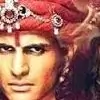





















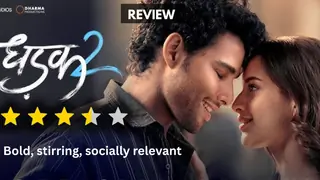
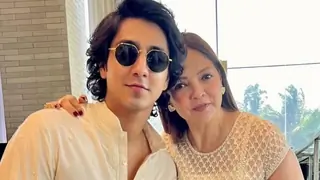
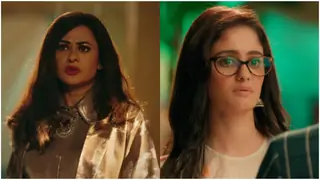

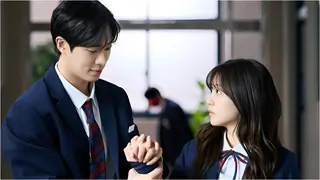
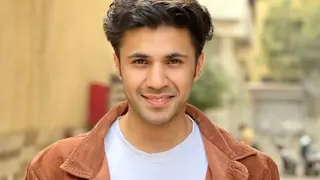
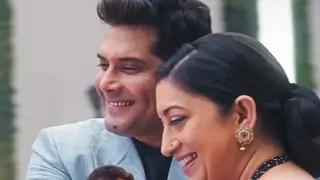
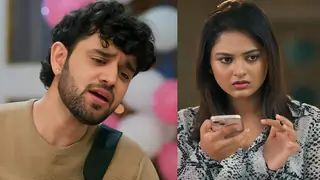
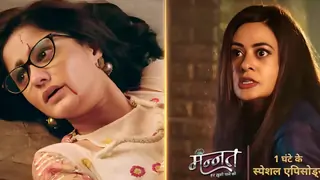
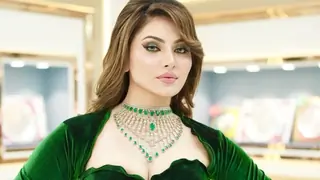
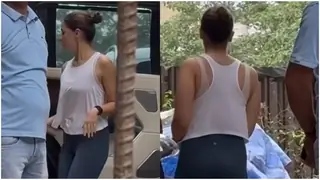

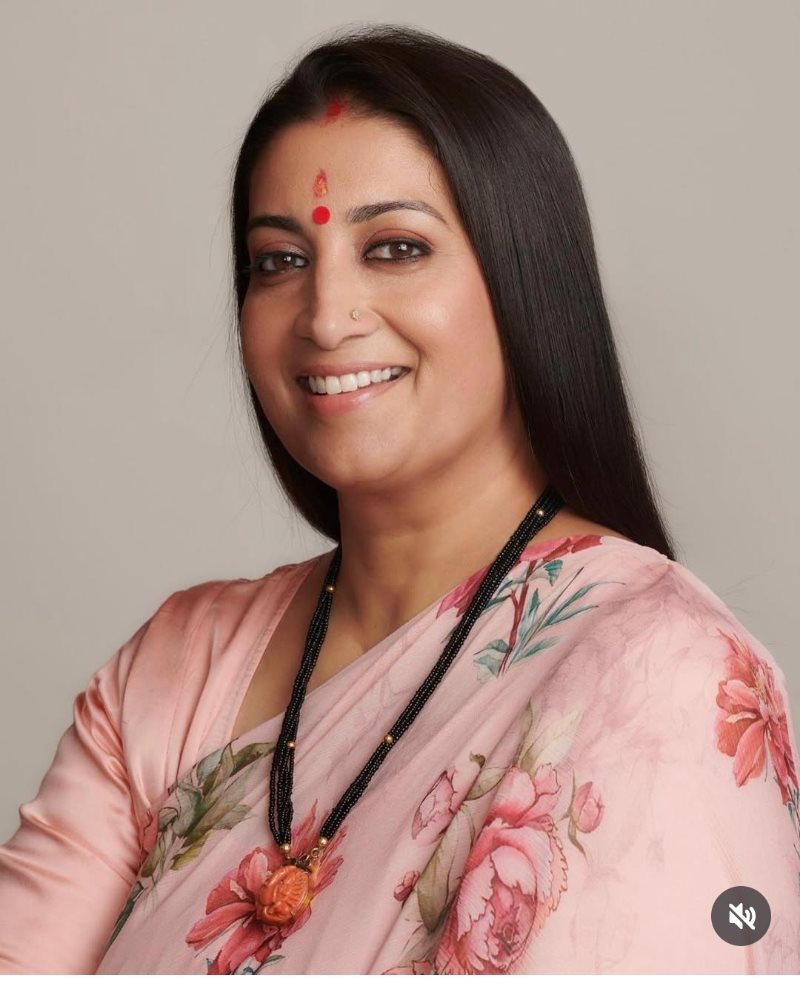


999